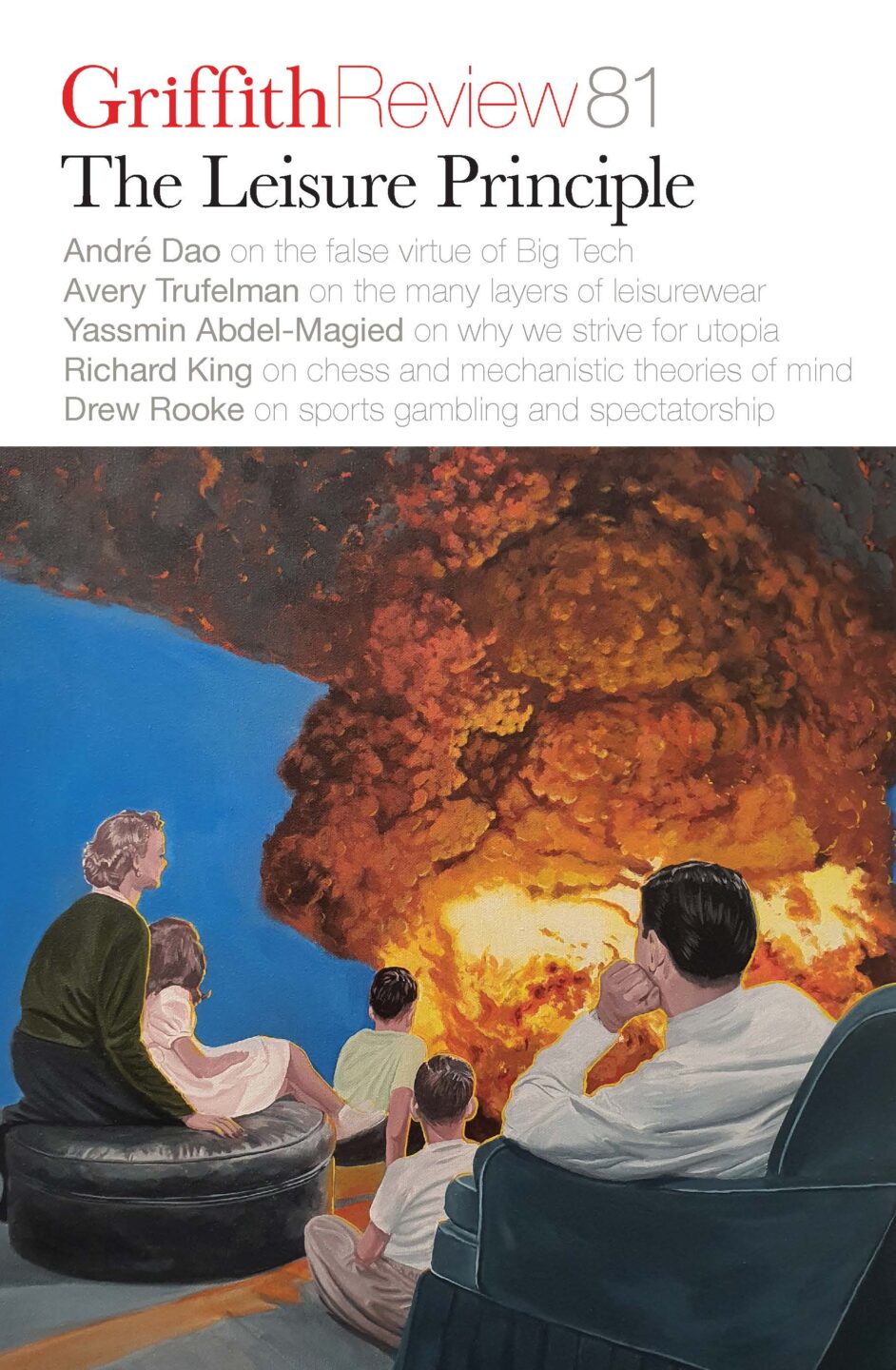Featured in

- Published 20230801
- ISBN: 978-1-922212-86-3
- Extent: 200pp
- Paperback (234 x 153mm), eBook

Already a subscriber? Sign in here
If you are an educator or student wishing to access content for study purposes please contact us at griffithreview@griffith.edu.au
Share article
About the author

Kathryn Fry
Kathryn Fry’s poetry has appeared in Antipodes, Cordite Poetry Review, Not Very Quiet, Westerly, Verandah and Science Write Now. Her collections Green Point Bearings...
More from this edition

History in Sid Meier’s Civilization VI
Poetry Because they spawn near each otherdiscover one another’s dog-scoutsSparta and Gandhi are contemporariesthe Eurotas river and the Gangesmuddying into the Indian Ocean, barbariantriremes appearing...

Dressed for success
In ConversationHip-hop was about taking this mainstream look – a nice, acceptable, appropriate look – and, like, changing it up. Sampling it like it’s a song and turning it into something new. So when preppy emerged in mainstream white corporate culture, it started mixing with denim in new ways and mixing with sneakers in new ways and becoming a form of streetwear.

Revolutionary wave
Non-fictionThis was the late ’60s, early ’70s and surfing in Wales was regarded by the parent generation as delinquency. It was for losers, layabouts, rogue males. In those early days Welsh surfers numbered around one hundred, congregated on half a dozen beaches down fifteen miles of coastline west of Swansea, known as the Gower. I knew each one of those surfers by the styles they deployed on the waves. So idiosyncratic was early Welsh surfing that out on the road if you saw a car with boards on the roof coming at you, both drivers would pull over for a chat.